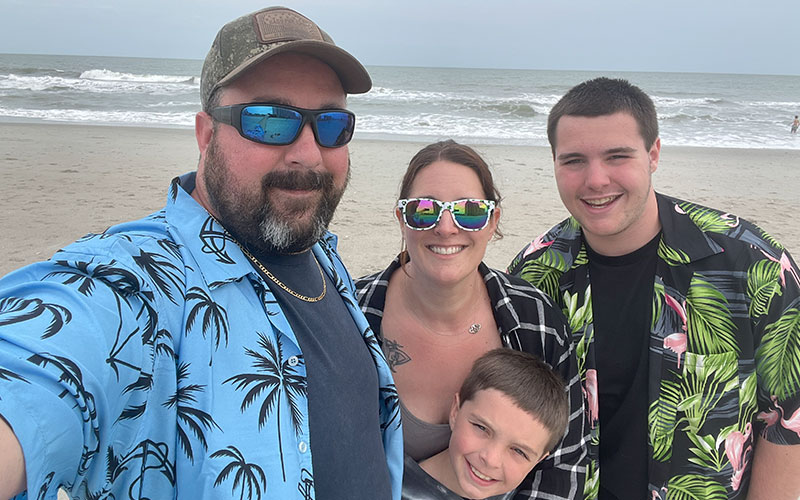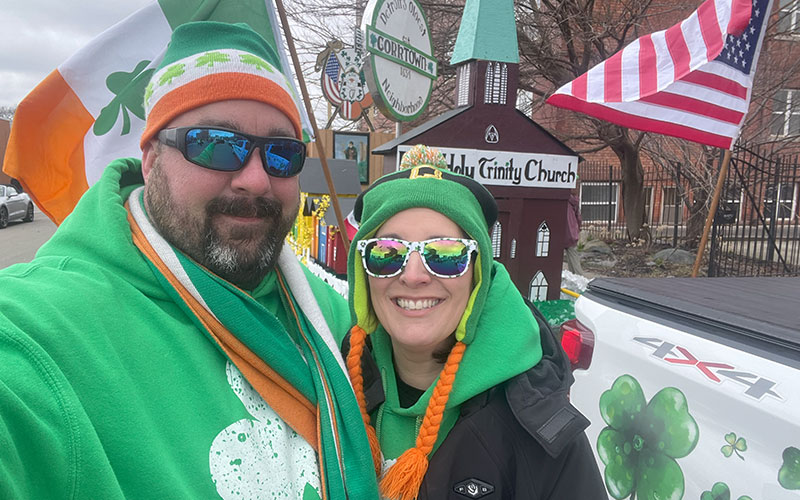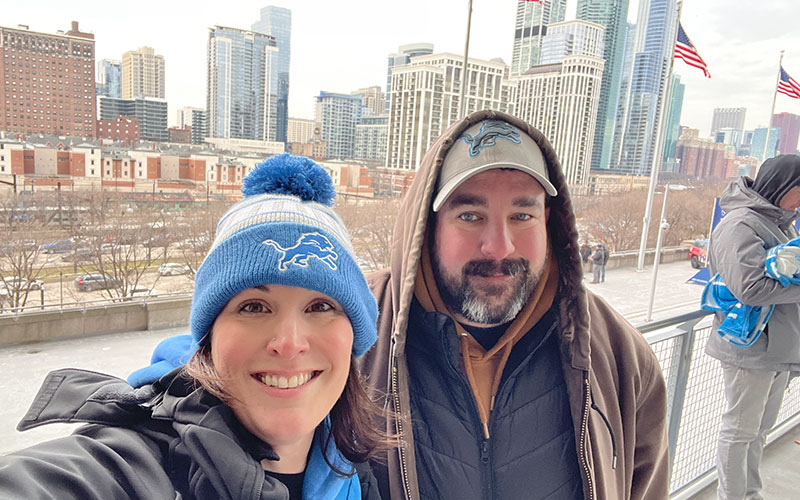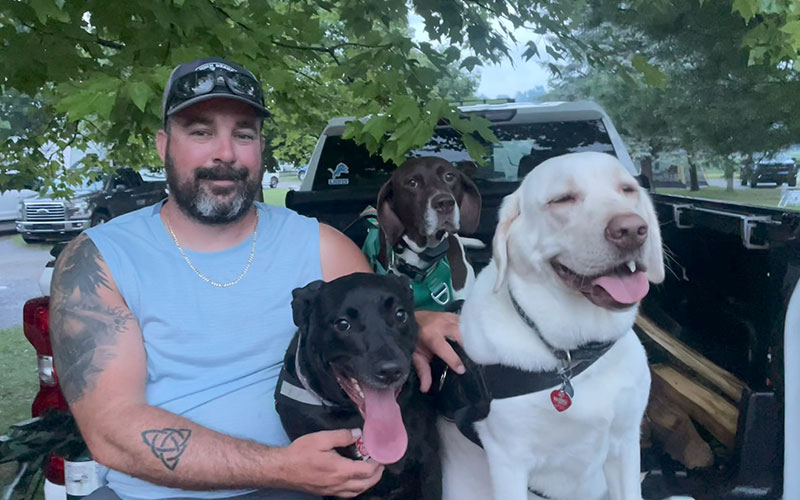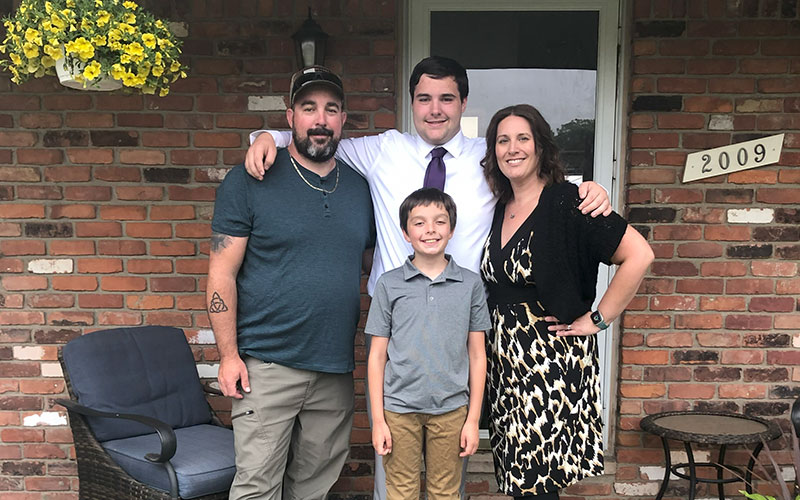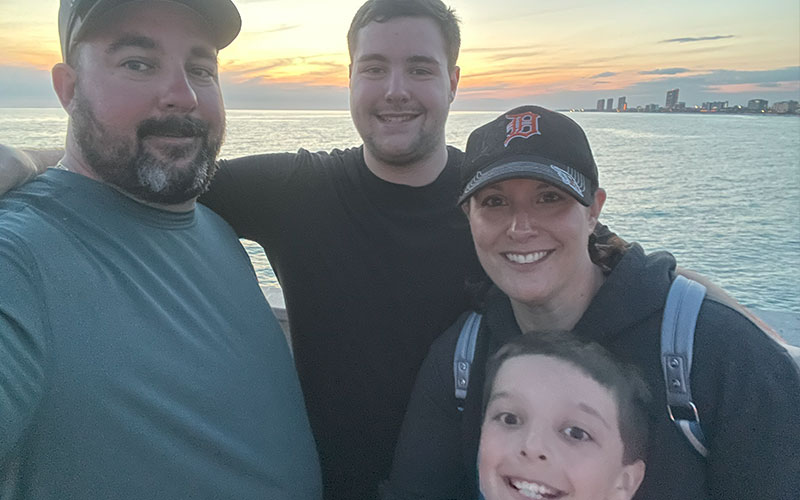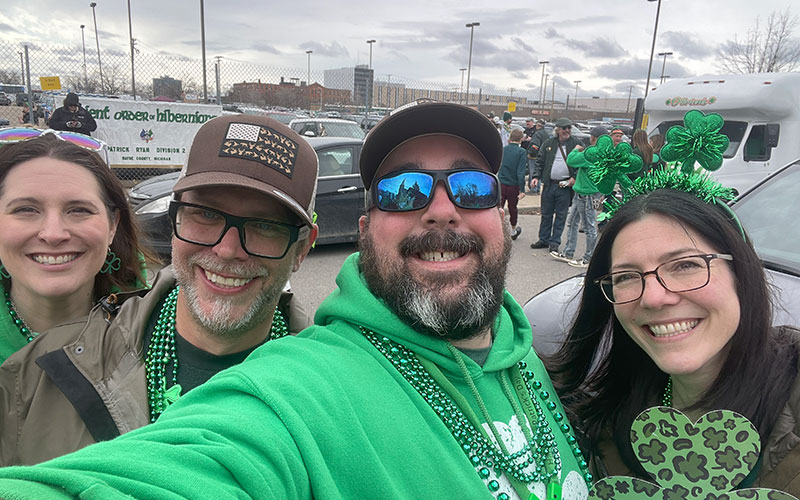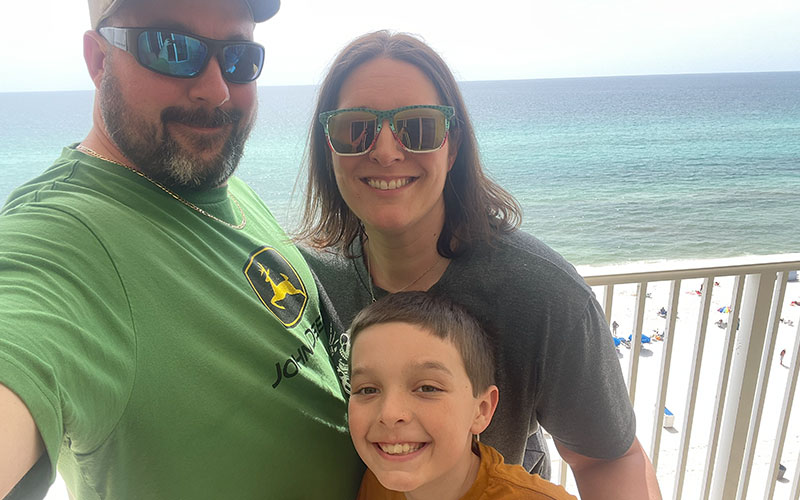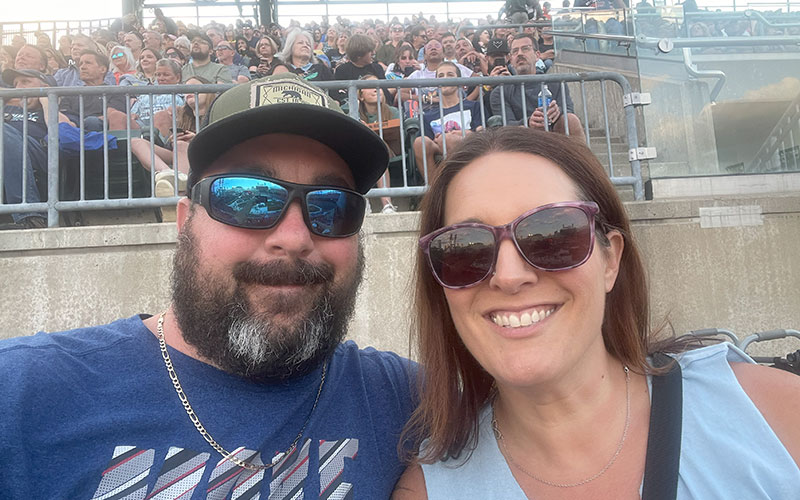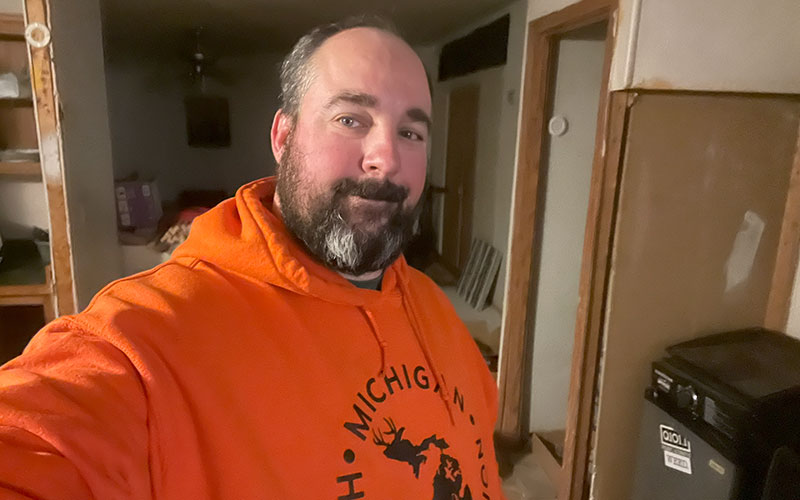A Second Chance Event
Joe Smith was living a busy, fulfilling life when it all came crashing down.
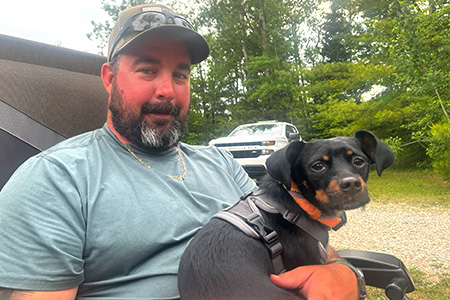 In 2024, Joe, a 39-year-old Troy resident, was working full-time for the school district as a driver, managing a landscaping business and raising two kids with his wife. He also loved camping, fishing and hunting up north.
In 2024, Joe, a 39-year-old Troy resident, was working full-time for the school district as a driver, managing a landscaping business and raising two kids with his wife. He also loved camping, fishing and hunting up north.
Other than his two previous shoulder surgeries, he didn’t go the doctor regularly and considered himself healthy. As a result, when Joe began experiencing some cardiovascular symptoms, he didn’t think anything of them.
“I’d feel lightheaded and dizzy whenever I bent over, and I had some shortness of breath,” he says. “But I ignored it.”
A wake-up call
Joe’s first real sign of trouble came during deer season. He shot a buck, something he’d done many times before. But when he tried to drag it out of the woods, Joe only made it ten feet.
“That wasn’t me,” he says. “I knew something wasn’t right.”
Even then, Joe didn’t plan on going to a doctor. Like many, he assumed the symptoms would pass. But when his wife and mother-in-law decided to volunteer at Henry Ford’s Healthy Heart screening event at Henry Ford Providence Southfield Hospital, they recommended he stop by.
“It was free, so I figured why not,” Joe says. “I never imagined what they’d find.”
Joe’s wife and mother-in-law, both in the medical field, performed his electrocardiogram (EKG), which revealed a shocking discovery: His heart was in atrial fibrillation (AFib), the most common type of rhythm disorder (or arrhythmia), which affects the upper chambers of the heart.
When Henry Ford Health doctors reviewed his results on-site, they sat Joe down and explained the seriousness of the situation.
The news gets worse
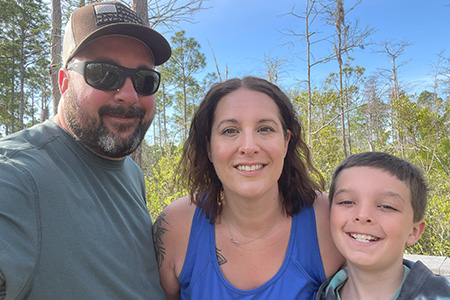 He was referred to Christian Machado, M.D., Medical Director of Cardiac Electrophysiology Services at Henry Ford Providence Southfield Hospital and Henry Ford Providence Novi Hospital.
He was referred to Christian Machado, M.D., Medical Director of Cardiac Electrophysiology Services at Henry Ford Providence Southfield Hospital and Henry Ford Providence Novi Hospital.
Dr. Machado and his team performed additional tests, which revealed another serious condition: Joe was in heart failure. His ejection fraction, a key measure of how well the heart pumps blood, was just 30%. A healthy heart measures between 55 and 70%.
“That flipped my world upside down,” Joe says. “I’m an extremely active guy who’s always on the go. Hearing the words ‘heart failure’ was devastating.”
Knowing the severity of Joe’s condition, his care team moved fast to help him. He first received a cardioversion, a procedure that uses controlled, low-energy electric shocks to restore normal rhythm. It worked for about a week.
“Then one day I was at work, walking down a school hallway, and I went into AFib,” Joe says. “My blood pressure shot up to 160. I called my wife who was on her way to work. She came and got me, and drove me to Providence.”
Joe was in the hospital for three days. His care team performed another cardioversion, but it didn’t get his heart out of AFib.
The next step was a cardiac ablation, a minimally invasive procedure that targets areas of the heart’s tissue responsible for causing the arrhythmia. Ablation safely uses thermal energy to block electrical signals that cause AFib, helping to restore the heart’s normal rhythm.
After the ablation, and with the help of medications, Joe made a strong recovery.
Several months later, the difference was remarkable. His ejection fraction went from 30 to 80%.
“It was better than I could have imagined,” Joe says. “And I was out of heart failure.”
Embracing change, and paying it forward
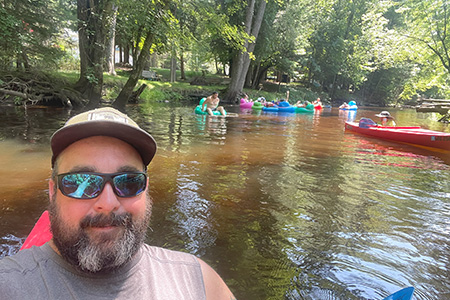 Joe didn’t stop with medical treatment and now has follow-up appointments with his cardiology team, including Henry Ford Health Cardiologist Wassim Nona, M.D., on a yearly basis to ensure he is staying heart healthy. He also made some big lifestyle changes. He started walking every day, ate less sugar, quit alcohol, lost 20 pounds and took a hard look at his career.
Joe didn’t stop with medical treatment and now has follow-up appointments with his cardiology team, including Henry Ford Health Cardiologist Wassim Nona, M.D., on a yearly basis to ensure he is staying heart healthy. He also made some big lifestyle changes. He started walking every day, ate less sugar, quit alcohol, lost 20 pounds and took a hard look at his career.
“I used to work eight hours at my day job, then three to four hours cutting grass,” Joe says. “Now I’ve scaled back. I still like to stay busy, but I focus on my health and my family first.”
This includes camping in the family RV, hunting and fishing, activities Joe wasn’t sure he’d get to enjoy again. His wife also encouraged Joe to get a smart watch to help confirm any new AFib episodes. Fortunately, these have not been as frequent and haven’t lasted as long as they did when he first entered treatment.
When Joe looks back, one moment stands out: the day his wife and mother-in-law convinced him to go to the Healthy Heart event.
“They saved my life,” Joe says. “I’m also grateful for the doctors, the nurses, everyone along the way,” Joe says. “They’re remarkable. They helped me and really cared. It showed in the way they treated me, and I don’t know if I would have had the same outcome somewhere else.”
In fact, he was so inspired by his own experience with the Healthy Heart event that in 2025, he went again—this time as a volunteer.
“I wanted to pay it forward,” he says. “To help someone else the way I was helped.”
"One heart screening changed everything, and saved my life. I Am Henry."
.svg?iar=0&hash=F6049510E33E4E6D8196C26CCC0A64A4)

/hfh-logo-main--white.svg?iar=0&hash=ED491CBFADFB7670FAE94559C98D7798)
